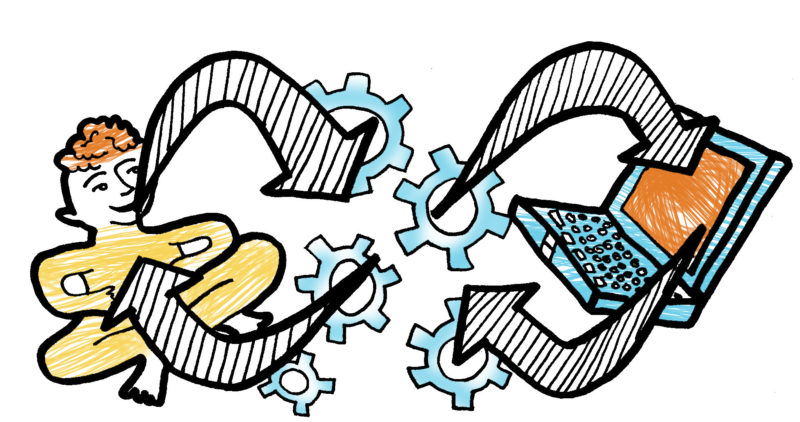
This is the full text on blende learning. A shorter version is published in Holding the Space.
Since the turn of the century, e-learning is without any doubt transforming the landscape of formal and non-formal education. Digital technology is proving to be an efficient means to support learning processes in several ways, including by sharing learning materials, enabling online communication and stimulating research. These developments are supported by the ongoing appearance of new e-tools. In this full text on possibilities for reflection on- and off-line you’ll find a overview of some of them.
However, during the project it became clear that these tools and their technical functioning are not the most important. According to us, essential are on the one hand an integral didactic approach (integrating both on- and off-line interaction with learners to co-create a reflective atmosphere) and on the other hand a reflexive teaching presence of the educator. The second part of the text deals with more particular experiences concerning reflecting on and off-line within REFLECT, ending with a specific story of a blended learning test project.